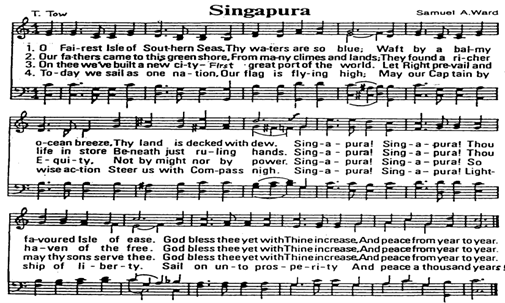Boundaries of Fellowship
Rev Dr Jeffrey Khoo
 The boundaries or limits of fellowship must be defined by our Lord Jesus Christ and His forever infallible and inerrant Word which is the sole and supreme authority for our faith and practice. Fellowship speaks of an intimate sharing of our lives with those whom we love and trust due to a common faith and bond. The Bible is quite clear as regards the people and things we need to associate with and those we need to dissociate from.
The boundaries or limits of fellowship must be defined by our Lord Jesus Christ and His forever infallible and inerrant Word which is the sole and supreme authority for our faith and practice. Fellowship speaks of an intimate sharing of our lives with those whom we love and trust due to a common faith and bond. The Bible is quite clear as regards the people and things we need to associate with and those we need to dissociate from.
Positive Boundary of Light
True, biblical fellowship must be conducted within the circle of believers who walk in the light. The Apostle John said, “But if we walk in the light, as he is in the light, we have fellowship one with another” (1 John 1:7). The light refers to God’s truth and holiness (Ps 43:3, John 3:21). We are called to fellowship with those who believe in the truth and live a holy life by walking in the truth. Such a biblical fellowship is vital for the protection and preservation of the faith from one generation to another (2 Tim 2:2). We are all keepers of our fellow brethren by teaching, reproving, correcting, and checking on one another according to God’s inspired and preserved, infallible and inerrant words so that we might all grow into Christlikeness (2 Tim 3:16-17).
When I was in the United States for theological studies, I had a fellow student and friend who kept me in check so that I would not stray from my fundamental doctrinal moorings. We checked on each other so that we would not become useless in ministry for there was much chaff in the seminary curriculum which would pose a danger to the building up of God’s church. The Bible says, “Iron sharpeneth iron; so a man sharpeneth the countenance of his friend” (Prov 27:17). True biblical fellowship will result in such a sharpening of our spiritual and doctrinal disposition to the glory of God.
Negative Boundary of Darkness
For true biblical fellowship to exist, there must be a separation from darkness. The Apostle Paul said, “Be ye not unequally yoked together with unbelievers: for what fellowship hath righteousness with unrighteousness? and what communion hath light with darkness?” (2 Cor 6:14). The answer is clear: there is absolutely none! Light and darkness, like water and oil, do not mix. The darkness of sin and falsehood is sourced in the devil and his demons (Eph 6:12). Believers are commanded not to have any “fellowship with the unfruitful works of darkness, but rather reprove them” (Eph 5:11). The Apostle James commanded, “Submit yourselves therefore to God. Resist the devil, and he will flee from you” (Jas 4:7). The Apostle Paul also said, “But now I have written unto you not to keep company, if any man that is called a brother be a fornicator, or covetous, or an idolater, or a railer, or a drunkard, or an extortioner; with such an one no not to eat” (1 Cor 5:11). “Be not deceived: evil communications corrupt good manners” (1 Cor 15:33). Even disobedient believers must be denied fellowship so that they might repent of their sin and error, and then be restored to the truth and to the church (2 Thess 3:14-15).
In an age of increasing unbelief and apostasy, it is vital that Bible-believing saints make every effort to commune with the truth and separate from error. Dr Carl McIntire has rightly said, “Fellowship is impossible between those who have varying opinions and viewpoints concerning Jesus Christ, His person and work. But a church is unfaithful when it unites with that which calls itself a fellowship, when true fellowship is impossible.” He also said, “When unbelief is yoked with belief, it always destroys the testimony of the people of God. Evil corrupts and destroys the truth.”
May we stay within the boundaries of true and godly fellowship so that we would not stray into the dangers of false friendship and fellowship which would lead us away from the Lord and His Word. In His high priestly prayer to His Father, the Lord Jesus prayed, “I have given them thy word; and the world hath hated them, because they are not of the world, even as I am not of the world. I pray not that thou shouldest take them out of the world, but that thou shouldest keep them from the evil. They are not of the world, even as I am not of the world. Sanctify them through thy truth: thy word is truth” (John 17:14-17). We are in the world, but not of the world.
God’s Special Providential Care of the Text of Scripture
Rev Dr Timothy Tow
Text: Deuteronomy 5:1-29; 9:10-21; 10:1-5
There are two accounts recorded by Moses on the giving of the Ten Commandments. The first is in Exodus 19:16-21:26; 31:18-32:28; 34:1-4. The second is recorded in Deuteronomy 5:1-29; 9:10-21; 10:1-5. Deuteronomy means second giving of the Law. Deuteronomy is Moses’ instruction to the children of Israel at the end of his life and of what greater importance is the giving of the Ten Commandments? For brevity, I have chosen to discuss from Deuteronomy and not Exodus.
The delivery of the Ten Commandments was made on the top of Mount Sinai, over 7,000 feet above sea level. The whole process took forty days and forty nights, amidst thunder and lightning, fire and smoke, the blowing of trumpet and the voice of Almighty God speaking to men. Then God wrote the sentences of the Ten Commandments with His own finger over the two tablets, front and back. In the climax of the forty days and nights, rebellion to God’s promulgation of the Ten Commandments arose from the ground. The people had made a golden calf to substitute for Jehovah saying this was their god, whereupon Moses’ wrath was kindled. When he was confronted by this golden calf, he became so angry that he threw the two tablets of law to the ground. Symbolically, God’s Commandments were broken. The golden calf the children of Israel had made was ground into fine powder and mixed with water for Israel to drink, which was their punishment. Can puny man rebel against God’s Word with impunity?
To re-establish the giving of the Law, God commanded Moses to hew another two tablets of stone and bring them with him back to the mountain top. “And he wrote on the tables, according to the first writing, the ten commandments, which the LORD spake unto you in the mount out of the midst of the fire in the day of the assembly: and the LORD gave them unto me. And I turned myself and came down from the mount, and put the tables in the ark which I had made; and there they be, as the LORD commanded me” (Deuteronomy 10:4-5).
The Ark of the Covenant is the only holy furniture kept inside the Holy of Holies. God’s sacred commandments, intact and written on both sides of the two tablets so nothing can be added and nothing can be subtracted, were kept secure from any human intrusion. “For ever, O LORD, thy word is settled in heaven” (Psalm 119:89).
The restoration of the two tables is to show that heaven and earth shall pass away, but His words shall not pass away. Not one letter or even the cross of a ‘t,’ and the dot of an ‘i.’ “For verily I say unto you, Till heaven and earth pass, one jot or one tittle shall in no wise pass from the law” (Matt 5:18). Jesus says, “The scripture cannot be broken” (John 10:35).
To doubly confirm that heaven and earth shall pass away but God’s words shall not pass away, we have the record in Jeremiah 36 of how the prophet asked his secretary Baruch to write words of condemnation against the House of Judah and caused them to be read to Judah. When the roll Jeremiah dictated to Baruch was read before Jehoiakim, king of Judah, he cut it up and burned it wholly in the fire. Did God’s Word become ashes? God told Jeremiah to repeat His Words to be written by Baruch again and add more words for the punishment of King Jehoiakim. Can puny man rebel against God’s Word with impunity?
This leads us to the doctrine of God’s special providential care of the text of Scripture. This is affirmed by the Westminster Confession. It states that the Scripture is “kept pure in all ages.” This is doubly attested by David in Psalm 12:6-7, “The words of the LORD are pure words: as silver tried in a furnace of earth, purified seven times. Thou shalt keep them, O LORD, thou shalt preserve them from this generation for ever.” The doctrine of the special providential care of the text of Scripture, however, is denied by even some fundamentalist scholars. Dr Carl McIntire has this commentary to make: “What is interesting about all this is that, in talking about the mighty acts of God and trying to make out of our God a great and powerful God, they have produced for us a God who is unable to give us a record that is true! They believe in the infallibility and inerrancy only in the autographs, but not in the subsequent copies.”
We believe the Textus Receptus (Received Text) upon which the KJV is based, is preserved intact for the church so that we can say we have the Word of God in our hands. But those versions that are based on Westcott and Hort who supplant with their corrupt text have made changes and deletions in 9,900 places in the New International Version (NIV). The text underlying NIV is not as the Westminster Confession says, “Kept pure in all ages.” God has preserved for us a pure Bible as He preserved the Ten Commandments for us to this day. Let me say it again, it is the Textus Receptus on which the KJV is based.
(The above article was originally published in the October-December 2002 issue of Bible Witness. Reprinted with permission.)



